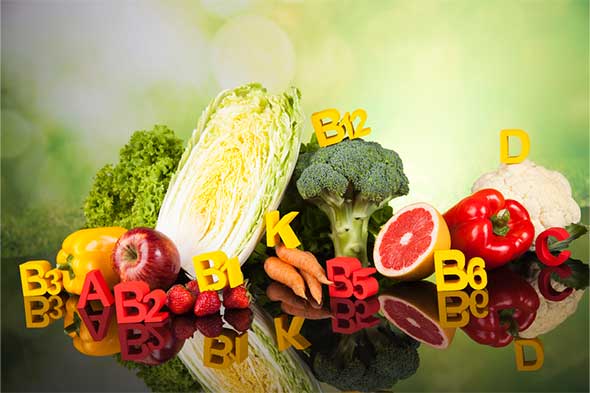We’ve all heard it when we were children, “Take your vitamins! They help you stay healthy!” It’s as ubiquitous as “Brush your teeth!” But which vitamins are best for dental health? And how much do I need? Can I get them through my normal diet, or do I need to take supplements? Are any vitamins or minerals harmful for my teeth? As dentists, we get these questions all the time, so we’ve assembled a list of answers for you.
Calcium
Calcium was always going to be at the top of this list. We all know calcium is useful in building strong bones, and your teeth are no exception. Strengthening the enamel coating on your teeth as well as building up your jawbone to support your teeth from their foundation, calcium is the superstar vitamin of the solid structures. It can be found in dairy products, soft boned fish, beans, and nuts.
Phosphorus
Phosphorus works with calcium to build strong bones and teeth. It is instrumental in regenerating tooth enamel, by ensuring that your body is absorbing all the calcium it can handle. Many delicious, protein packed foods contain a good dose of phosphorus, like seafood, soybeans, meat, and eggs.
Potassium and Magnesium
Potassium and Magnesium are critical in maintaining a proper pH in your bloodstream. Basically, they ensure that your blood doesn’t become too acidic, and begin dissolving your bones and teeth. Bananas are the most well known source of potassium, but this volatile mineral along with its coworker magnesium is also found in appreciable amounts in lima beans, avocados, and swiss chard.
Vitamin B Complex
The B complex is made up of 8 different vitamins. B1 – Thiamine, B2 – Riboflavin, B3 – Niacin, B6 – Pyridoxine, B9 – Folic acid, B12 – Cyanocobalamin and pantothenic acid and biotin. Healthy amounts of Vitamin B3, or niacin, helps prevent canker sores and bad breath. Poultry, meat, and fish are all good sources of this vitamin. Vitamin B complex can also help prevent irritation of the inside and outside of the mouth. These vitamins are helpful in preventing inflammation of the tongue, cracked lips, and help against gum disease.
Vitamin K2
Vitamin K2 is a protein that is essential for dentin growth, which prevents cavities. It does this by working along with Vitamin D to move calcium out of soft tissue and your bloodstream, and into your teeth and bonesIt’s also useful in speeding up healing processes and stopping bleeding. Eat your leafy greens to get your proper dose of vitamin K2.
One of the substances that might escape most lists of beneficial vitamins and minerals for dental health is water. While water itself isn’t technically a vitamin or mineral, geologists have conceded that naturally occurring ice can be classified as a mineral, and water is too beneficial to be ignored.
Drinking water has huge benefits for your dental health. Mechanically, it rinses away bacteria and food particles, which helps prevent cavities and gum disease. It restores hydration to your mouth, and stimulates saliva production. Chemically, it dilutes the acids present in your mouth from foods, drinks, and plaque, which protects the calcium from dissolving. Also, most tap water and mineral water contains fluoride, which helps your enamel develop strength. Water also replaces sugary beverages in your diet, which can cut down on cavities and calories.
Here at Good Samaritan Dental Implant Institute, we would encourage some preventative medicine in the form of a healthy diet, full of vitamins and minerals, than to treat the problems that ignoring this advice will cause. We want you and your teeth to have a happy, healthy life together, free from pain and worry. We also want you to know we are here to help, both in an advisory and a service capacity. If you do end up needing a dental implant, Dr. Slavin‘s annual dental implant patient follow-up is free for life.


